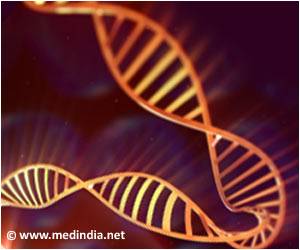Transposon activity can affect lifespan and a study finds calorie intake and gene manipulation essential in suppressing these rogue elements.
Highlights
- Exponential increase in transposon activity identified in aging process.
- Scientists find low calorie diet suppresses transposon activity and increases life span.
- Gene manipulation could lead to the over-expression of certain genes that suppress the activity of transposons.
Senior author Dr. Stephen Helfand from The Brown University of Biology and colleagues have found that certain interventions that include controlling calorie intake and gene manipulations could affect the activity of these transposons and increase lifespan.
The recent study published in the Journal Proceedings of the National Academy of Sciences provides evidence for interventions that could increase lifespan. Dr. Stephen Helfand said “ In this report the big step forward is towards the possibility of a true causal relationship. So far there have been associations and suggestions that to all of us make sense, but the difference in science is that you need the data to back up your opinion."
Mechanism of Action of the Transposable Elements
Transposons are found to be more active in somatic cells than in germ line cells and this is attributed to an evolutionary need to protect the germ line cells. However, the underlying mechanism, according to a study by Sturm Á and colleagues titled “ The mechanism of ageing: primary role of transposable elements in genome disintegration” and published in the Journal Cellular and Molecular Life Sciences, attributes this to the presence of a Piwi-piRNA system in germ line cells.
The Piwi-piRNA system suppresses the transposable elements which allow germ line cell proliferation with the preservations of genomic integrity. This system is also found in
- Tumor cells
- Somatic cells of organisms like hydra that displays immortality
Proof of Movement of Transposons
Scientists from The Brown University studied the movement of these transposons by inserting certain genetic segments, in which the movement of specific transposable elements leads to a fluorescent glow that could be viewed under the microscope, into the fat body cells of fruit flies. These fat body cells in fruit flies were equivalent to human liver.As the age of the fruit flies increased there was an increase in the movement of transposons and the increase was not steady but exponential.
Low Calorie Diet and Transposon Activity
A low calorie diet is considered important to maintaining health and the right weight for an individual but the researchers in this study found that a low calorie diet could delay the activity of transposons. This can increase the lifespan of the individual.Gene Manipulation and Transposon Activity
The scientists from Brown University performed a series of experiments that involved the manipulation of genes in lowering transposon activity- Su(var)3-9 gene: When the gene Su(var)3-9 is over expressed it leads to the formation of heterochromatin that restricts the activity of the transposable elements. This was found to increase the lifespan of the fruit flies from 60 days to 80 days.
- Dicer-2: When the expression of Dicer-2 is increased, it leads to the utilization of the small RNA pathway to suppress the activity of the transposons. In mice with mutation in Dicer-2 gene, there is a disruption in the ability to control the transposons. When the HIV drug 3TC was introduced into such mice, there was an increase in lifespan.
The scientists in the study have highlighted the importance of the transposons in increasing the lifespan, however, as Dr. Jason Wood who is a faculty investigator of the study said "There are lots of potential mechanisms that influence the aging process. There are a lot of things going on, but we think this is one of them."
The scientists aim to look at the following factors to determine the importance of transposons in affecting the lifespan
- Transposon activity will be increased in a living system and its effect on aging studied.
- The gene editing tool CRISPR will be used to study the effect of transposons on the lifespan.
- Drug interventions that affect the activity of the transposons will be studied.
The extensive studies that are being carried out will provide a better insight into how these transposons can affect the expression of our genes and how interventions could prevent the activity of these rogue elements. However, the current study underlines the importance of a low calorie diet, especially in controlling transposon activity.
References:
- Transposable Elements in Aging - (https://www.fightaging.org/archives/2015/10/transposable-elements-in-aging/)
- The Mechanism of Aging - (http://www.ncbi.nlm.nih.gov/pubmed/25837999)















